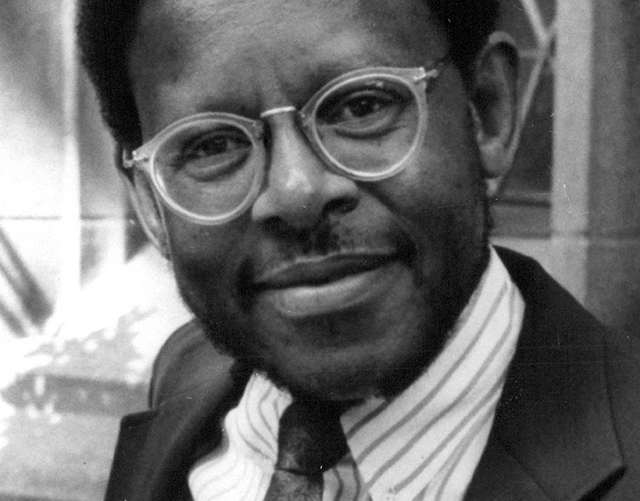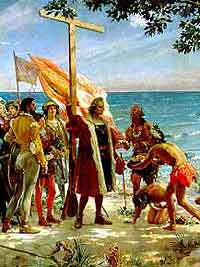Memorial Day preparation materials
• “Memorial Day: A historical summary”
• “Conflicting memorials: The Lord’s Table of remembrance vs. the nation’s vow of preeminence,” an essay
Read more ›

No problem can be solved from the same level of consciousness that created it. — Albert Einstein
Memorial Day preparation materials
• “Memorial Day: A historical summary”
• “Conflicting memorials: The Lord’s Table of remembrance vs. the nation’s vow of preeminence,” an essay
Read more ›§The bows of the mighty are broken, but the feeble gird on strength. Those who were full have hired themselves out for bread, but those who were hungry have ceased to hunger. . . . [God] raises up the poor from the dust [and] lifts the needy from the ash heap, to make them sit with the rulers and inherit a seat of honor. —1 Samuel 2:4-5, 8a
§You have heard that it was said, “An eye for an eye, and a tooth for a tooth.” But I say to you, Do not resist an evildoer. But if anyone strikes you on the right cheek, turn the other also. . . . You have heard that it was said, “You shall love your neighbor and hate your enemy.” But I say unto you, Love your enemies and pray for those who persecute you. —Matthew 5:38-39, 43-44
§The Messenger of God (peace and blessings be upon him) said: Whoever is untrustworthy in his dealings has no faith, and whoever is not committed to his promises has no religion. —Bayhaqi
Read more ›by Ken Sehested
I was traveling when the news of Dr. James Cone’s death was reported on Saturday. The first thought that came to mind was what seems to be a providential concurrence: His passing came two days after the opening of the National Peace and Justice Memorial, solemnizing the lynching in the US of some  4,400 black people, in 800 counties, between 1877 and 1950.
4,400 black people, in 800 counties, between 1877 and 1950.
Cone’s last book, The Cross and the Lynching Tree, was recipient of this year’s Grawemeyer Award in Religion. In that book he wrote “in the United States, the clearest image of the crucified Christ was the figure of an innocent black victim, dangling from a lynching tree.” A fitting reminder in this season of Eastertide.
Read more ›Compiled by Ken Sehested
 § And the Lord God planted a garden in Eden, in the east; and there he put the man whom he had formed. Out of the ground the Lord God made to grow every tree that is pleasant to the sight and good for food, the tree of life also in the midst of the garden, and the tree of the knowledge of good and evil. ~Genesis 2:8-9
§ And the Lord God planted a garden in Eden, in the east; and there he put the man whom he had formed. Out of the ground the Lord God made to grow every tree that is pleasant to the sight and good for food, the tree of life also in the midst of the garden, and the tree of the knowledge of good and evil. ~Genesis 2:8-9
§ Gardening is cheaper than therapy and you get tomatoes. ~author unknown
Read more ›by Ken Sehested
Introduction: In a 5 June 2015 Huffington Post article, Dr. Chuck Currie, Chaplain and Director of the Center for Peace and Spirituality at Pacific University, urged fellow United Church of Christ members to reject that body’s Synod resolution supporting the "boycott, divestment and sanctions" action in opposition to Israel's occupation of Palestine. This week I’ve written the following response.
Thanks, Chuck, for sending me your post in opposition to the “Boycott, Divestment and Sanctions” (BDS) initiative. I haven’t been involved in the movement, and won’t be at the Synod to deliberate the question. But your thoughtful writing is worthy of response.
Read more ›My Earth Day commitment
For renewing my intent to care for the earth
My name: ___________________________________________________________________________
Read more ›
By Stan Hastey
Cuba stands at a crossroads unlike any other in the 59 years since a rebel army headed by Fidel Castro and his younger brother, Raul, defeated the supposedly far superior armed forces under the command of Fulgencio Batista. Batista, the last in a series of corrupt and repressive Cuban presidents backed and kept in power by the United States for the previous half century, fled the island nation as three columns of rebel soldiers bore down on Havana during Christmas week 1958. Declaring victory on New Year’s Day 1959, the three commanding officers—Raul Castro, Ernesto  (Che) Guevara, and Camilo Cienfuegos—welcomed Fidel to Havana one week later, where the charismatic leader formally declared victory before a massive crowd of supporters convinced that a new day had dawned on the economically and educationally deprived nation.
(Che) Guevara, and Camilo Cienfuegos—welcomed Fidel to Havana one week later, where the charismatic leader formally declared victory before a massive crowd of supporters convinced that a new day had dawned on the economically and educationally deprived nation.
Among the undeniably significant achievements of the Castro brothers’ revolution have been the virtual elimination of illiteracy by means of a system of public education funded and overseen by the government from kindergarten through university graduate studies and a public health system premised on prevention that boasts a lower infant mortality rate than that of the United States. These are measurable successes.
Read more ›Growing up in Mexico as a missionary kid gave me a different perspective on my native land. Whether always welcomed or not, I could not help but filter my own early sense of patriotism through the lenses of classmates. Their take on the United States was that of the colossus to the North that had stolen a huge section of their country in an illegitimate war and given it a new name—Texas.
When Fidel Castro and his revolutionary compatriots seized control of Cuba on January 1, 1959, I was 14. In Torreón, the city in northern Mexico where my family lived during my junior and senior high school years (except for 11th grade in 1960-1961 when I attended Polytechnic High School in Fort Worth) spontaneous street celebrations broke out. It would take me a good while longer to understand better why Mexicans took such glee in the triumph of the Castro brothers, Che Guevara and the other bearded firebrands on a Caribbean island most of them never dreamed of visiting.
What the crowds in Torreón and countless other cities and towns throughout Latin America were cheering was that an apparently rag-tag bunch of indigenous dreamers had run off a military dictator put in power by the United States of America. (This brings to mind another bit of hubris that we U.S. citizens tend to have, that of referring to the USA as “America” as though we owned the entire continent. My school friends, by the way, liked to make the point that the formal name of their country is the “United States of Mexico.”)
by Ken Sehested
You will be excused for not knowing that Cuba is in the midst of a historic electoral process which, when completed, will feature a Cuban president not named Castro. (It’s quite possible you didn’t even know Cuba had elections.)
The process began on 26 November 2017 when citizens went to polling stations in every district across the country to select leaders to serve on ward [precinct] and municipal governing bodies as “delegates.” On 11 March, candidates for  provincial and national legislatures will be chosen. The National Assembly will then chose a new president to succeed Raúl Castro, who retires on 19 April.
provincial and national legislatures will be chosen. The National Assembly will then chose a new president to succeed Raúl Castro, who retires on 19 April.
by Ken Sehested
Saturday 24 March 2018
I am not ashamed to admit it. They made me do it. Cry. More than once. “They” being the uncommonly common students who led the March For Our Lives rally—three-quarters of a million strong—in Washington, DC. The day may well be accounted as among the most significant in our nation’s history.
What makes all of us commoners uncommon is when we experience the pain of trauma up close and personal, find the  resilience to endure, take a hammer of righteous rage to that trauma and pound it on the forge of conviction that another world is possible, another way will open if we hold out, hold on, hold up, and hold over—over against those who say things can’t change, that’s the way it is, get over it, in our kiss-up-and-kick-down culture.
resilience to endure, take a hammer of righteous rage to that trauma and pound it on the forge of conviction that another world is possible, another way will open if we hold out, hold on, hold up, and hold over—over against those who say things can’t change, that’s the way it is, get over it, in our kiss-up-and-kick-down culture.
Subscribers receive full access to the entire prayer&politiks site. It’s free. Each week you will receive an automated email with a link to the new edition of the Signs of the Times column. All you provide is you name, email address and city, state or province, and country. This information is never shared with any other party. The only other agreement you make is to receive two solicitation letters per year, one in the spring, the other in the fall. (Which you are free to ignore. Your subscription is still free, and you may “unsubscribe” at any time.) This is our modern begging-bowl. Contributions are our sole source of support.